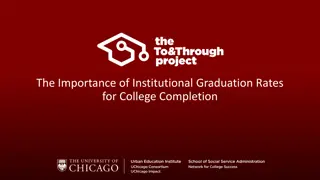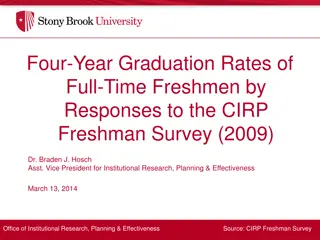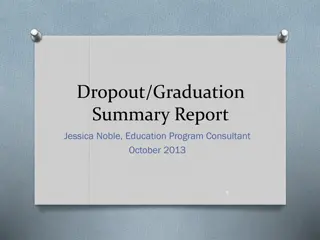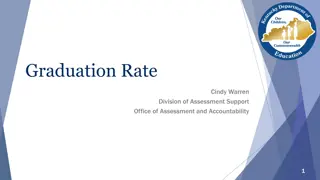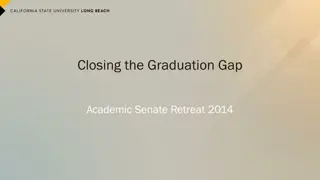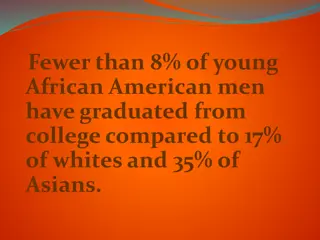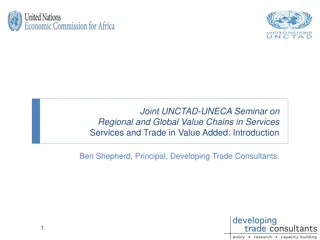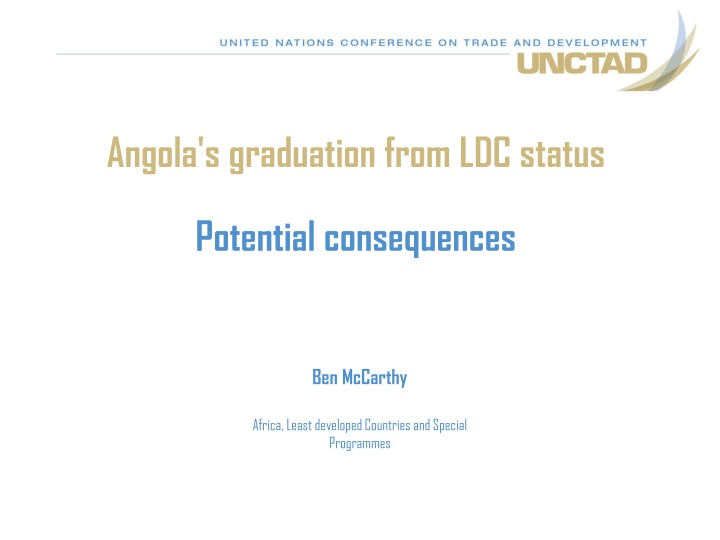
Angola's Graduation from LDC Status: Consequences & Challenges
Explore the potential consequences of Angola transitioning from a Least Developed Country (LDC) status, including economic impacts, export structures, market access changes, and implications of losing preferential trade schemes. Discover the challenges and opportunities as Angola moves towards upper-middle-income status.
Download Presentation

Please find below an Image/Link to download the presentation.
The content on the website is provided AS IS for your information and personal use only. It may not be sold, licensed, or shared on other websites without obtaining consent from the author. If you encounter any issues during the download, it is possible that the publisher has removed the file from their server.
You are allowed to download the files provided on this website for personal or commercial use, subject to the condition that they are used lawfully. All files are the property of their respective owners.
The content on the website is provided AS IS for your information and personal use only. It may not be sold, licensed, or shared on other websites without obtaining consent from the author.
E N D
Presentation Transcript
Angola's graduation from LDC status Potential consequences Ben McCarthy Africa, Least developed Countries and Special Programmes
Transitioning from LDC status Graduation in context Angola first found eligible for graduation in 2012 (income only) LDC average GDP per capita is $1640 (2014) Angola's GDP per capita is $6054 Economy is the 2ndlargest of all LDCs, and 5thlargest in Africa Despite high absolute and relative wealth compared to other LDCs, there are still challenges
Transitioning from LDC status Structure of exports (2014) Diamonds, 1.5% Scrap iron, copper, aluminium etc. 0.2% Source: The Observatory of Economic Complexity (MIT)
Transitioning from LDC status Market access Angola is one of the least-diversified economies - but its main export benefits from great market access Oil exports also concentrated in few markets: 41% to China 15% to EU 7.7% to United States 7.6% to India
Transitioning from LDC status Non-LDC preferential schemes Preferential access to the United States via the African Growth and Opportunities Act (until 2025) Angola will lose access to EU's 'Everything But Arms' - after a transition period of three years (to 2024) Continued preferential access to EU through the Generalised Scheme of Preferences (GSP) is uncertain - Angola is upper-middle-income country Other countries - e.g. Australia, Canada, New Zealand
Transitioning from LDC status SADC Free Trade Area Currently Angola trades very little with the Southern African Development Community - 2.5% of exports Despite signing the Protocol on Trade in 2002, has not moved towards joining the SADC FTA Opportunities for increased access to regional markets are available
Transitioning from LDC status TRIPS TRIPS sets out basic standards for the treatment of intellectual property between WTO members LDCs are not required to implement the agreement, except for a few basic provisions (articles 3,4,5) There is no extra transition period for graduating countries - WTO members are expected to implement the agreement at graduation In any case, the transition period for all LDCs ends July 2021
Transitioning from LDC status Enhanced Integrated Framework Multi-donor programme that aims to integrate LDCs into the global trade system A Diagnostic Trade Integration Study (DTIS) can be followed up with technical cooperation projects The EIF contains transition provisions - access maintained for at least three years after graduation, and possibly five
Transitioning from LDC status Current implementation in Angola Angola's participation in the Enhanced Integrated Framework has been limited A Diagnostic Trade Integration Study was completed in 2006 Currently, no technical cooperation projects being carried out EIF can be utilised until 2024
Transitioning from LDC status Final considerations Currently Angola sees relatively little benefit from LDC status Moving out of the LDC category can contribute to changing perceptions Graduation does not need to be the focus for the country - an ongoing strategy for sustainable development is essential
Transitioning from LDC status Thankyou for your attention Ben McCarthy Africa, Least Developed Countries and Special Programmes Division benjamin.mccarthy@unctad.org


